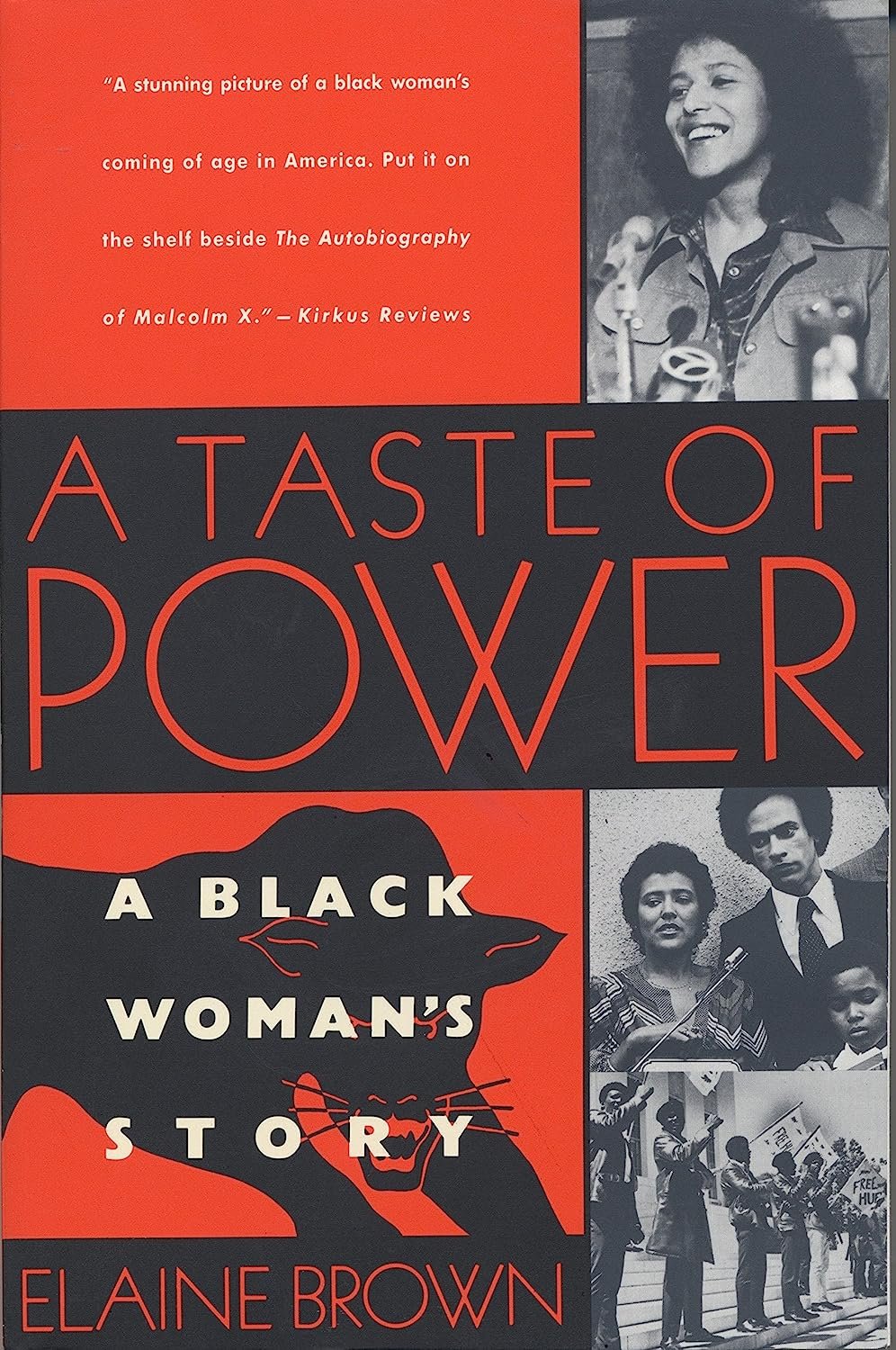A Taste of Power
Elaine Brown assumed her role as the first and only female leader of the Black Panther Party with these words: “I have all the guns and all the money. I can withstand challenge from without and from within. Am I right, Comrade?” It was August 1974. From a small Oakland-based cell, the Panthers had grown to become a revolutionary national organization, mobilizing black communities and white supporters across the country—but relentlessly targeted by the police and the FBI, and increasingly riven by violence and strife within. How Brown came to a position of power over this paramilitary, male-dominated organization, and what she did with that power, is a riveting, unsparing account of self-discovery.
Brown’s story begins with growing up in an impoverished neighborhood in Philadelphia and attending a predominantly white school, where she first sensed what it meant to be black, female, and poor in America. She describes her political awakening during the bohemian years of her adolescence, and her time as a foot soldier for the Panthers, who seemed to hold the promise of redemption. And she tells of her ascent into the upper echelons of Panther leadership: her tumultuous relationship with the charismatic Huey Newton, who would become her lover and her nemesis; her experience with the male power rituals that would sow the seeds of the party's demise; and the scars that she both suffered and inflicted in that era’s paradigm-shifting clashes of sex and power. Stunning, lyrical, and acute, this is the indelible testimony of a black woman’s battle to define herself.
Elaine Brown assumed her role as the first and only female leader of the Black Panther Party with these words: “I have all the guns and all the money. I can withstand challenge from without and from within. Am I right, Comrade?” It was August 1974. From a small Oakland-based cell, the Panthers had grown to become a revolutionary national organization, mobilizing black communities and white supporters across the country—but relentlessly targeted by the police and the FBI, and increasingly riven by violence and strife within. How Brown came to a position of power over this paramilitary, male-dominated organization, and what she did with that power, is a riveting, unsparing account of self-discovery.
Brown’s story begins with growing up in an impoverished neighborhood in Philadelphia and attending a predominantly white school, where she first sensed what it meant to be black, female, and poor in America. She describes her political awakening during the bohemian years of her adolescence, and her time as a foot soldier for the Panthers, who seemed to hold the promise of redemption. And she tells of her ascent into the upper echelons of Panther leadership: her tumultuous relationship with the charismatic Huey Newton, who would become her lover and her nemesis; her experience with the male power rituals that would sow the seeds of the party's demise; and the scars that she both suffered and inflicted in that era’s paradigm-shifting clashes of sex and power. Stunning, lyrical, and acute, this is the indelible testimony of a black woman’s battle to define herself.
Elaine Brown assumed her role as the first and only female leader of the Black Panther Party with these words: “I have all the guns and all the money. I can withstand challenge from without and from within. Am I right, Comrade?” It was August 1974. From a small Oakland-based cell, the Panthers had grown to become a revolutionary national organization, mobilizing black communities and white supporters across the country—but relentlessly targeted by the police and the FBI, and increasingly riven by violence and strife within. How Brown came to a position of power over this paramilitary, male-dominated organization, and what she did with that power, is a riveting, unsparing account of self-discovery.
Brown’s story begins with growing up in an impoverished neighborhood in Philadelphia and attending a predominantly white school, where she first sensed what it meant to be black, female, and poor in America. She describes her political awakening during the bohemian years of her adolescence, and her time as a foot soldier for the Panthers, who seemed to hold the promise of redemption. And she tells of her ascent into the upper echelons of Panther leadership: her tumultuous relationship with the charismatic Huey Newton, who would become her lover and her nemesis; her experience with the male power rituals that would sow the seeds of the party's demise; and the scars that she both suffered and inflicted in that era’s paradigm-shifting clashes of sex and power. Stunning, lyrical, and acute, this is the indelible testimony of a black woman’s battle to define herself.
